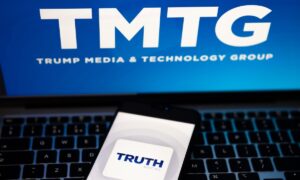Trial of Crypto Trader Eisenberg Exposes $110 Million Fraud, Casting Spotlight on DeFi Practices

NEW YORK – The court case against cryptocurrency trader Avi Eisenberg for alleged fraud and market manipulation is set to commence on Tuesday following the selection of a 15-member jury by a federal judge. This diverse group includes individuals from various professions, such as a rare book merchant, an elementary school music teacher, and a couple of experts in finance.
The trial, which is expected to last a fortnight, will explore Eisenberg’s conduct in October 2022 when he executed what he claimed to be a profitable trading tactic. This act resulted in substantial disruptions within Mango Markets, previously a favored crypto wagering platform operating on the Solana blockchain.
As governments take measures to regulate purported illegal activities in the decentralized finance (DeFi) landscape where the adage “code is law” prevails, this trial serves as a benchmark. Unlike centralized finance platforms such as Coinbase, Mango Markets operates on the premise of smart contracts to facilitate trades, loans, and borrowings.
Allegations against Eisenberg include exploiting Mango Markets by deliberately distorting the value of the platform’s native MNGO token, which enabled him to borrow against heavily skewed positions and consequently withdraw cryptocurrencies worth over $110 million deposited by other users. Although he later returned part of these funds in an agreement to forestall prosecution by Mango’s stakeholders, his prosecution proceeded nonetheless.
The agreement, however, did not hold.
In the Monday court session, legal teams projected possible evidence from Mango’s founder, Dafydd Durairaj, who, post-Eisenberg’s actions, consulted a ransomware negotiator. The prosecution’s stance is that this supports their view of the negotiations not being on even terms, but akin to a tense crisis. Despite Eisenberg’s defense objecting to mentioning the ransomware negotiator, Judge Arun Subramanian allowed its potential introduction should the defense describe the negotiations as equitable.
The court witnessed debates regarding the interpretation of “manipulation,” how witnesses might utilize the term, and its context within online service agreements. Additionally, the discussion extended to the meaning of obligations for traders on Mango Markets, questioning whether such terms suggest legal commitments or are merely linked to the outcomes of smart contract enactments.
These linguistic disputes hint at the intricacies anticipated in a trial aiming to transform elaborate cryptocurrency violations into straightforward fraud instances, mirroring the prosecutorial approach used in Sam Bankman-Fried’s trial last year and the recent Terraform Labs and Do Kwon civil fraud case.
Eisenberg’s case delves into the deeper philosophical and technical debates of token trading on permissionless blockchains and marks the first federal criminal trial of a DeFi trader accused of violating U.S. law in a sphere once believed to be unregulated by it.
The empaneled jurors exhibited a lack of enthusiasm for spending Eclipse Day confined within the walls of the 15th-floor courtroom. One juror lamented missing a planned observance at a science museum, opting for the confines of the jury box instead. Despite Judge’s promise to dim courtroom lights during the peak of the eclipse, that moment never came.
Despite the indoor setting, many arrived equipped with eclipse glasses. There was an opportunity for a brief viewing when the judge and attorneys paused for discussions on juror dismissals, which saw jurors, journalists, and even the U.S. Marshal taking turns to catch a glimpse of the celestial phenomenon through the expansive windows.
“You can see it again in 20 years,” the judge mentioned to those in the courtroom later.
Source link
#Crypto #Trader #Eisenbergs #110M #Fraud #Trial #Put #DeFi #Microscope




